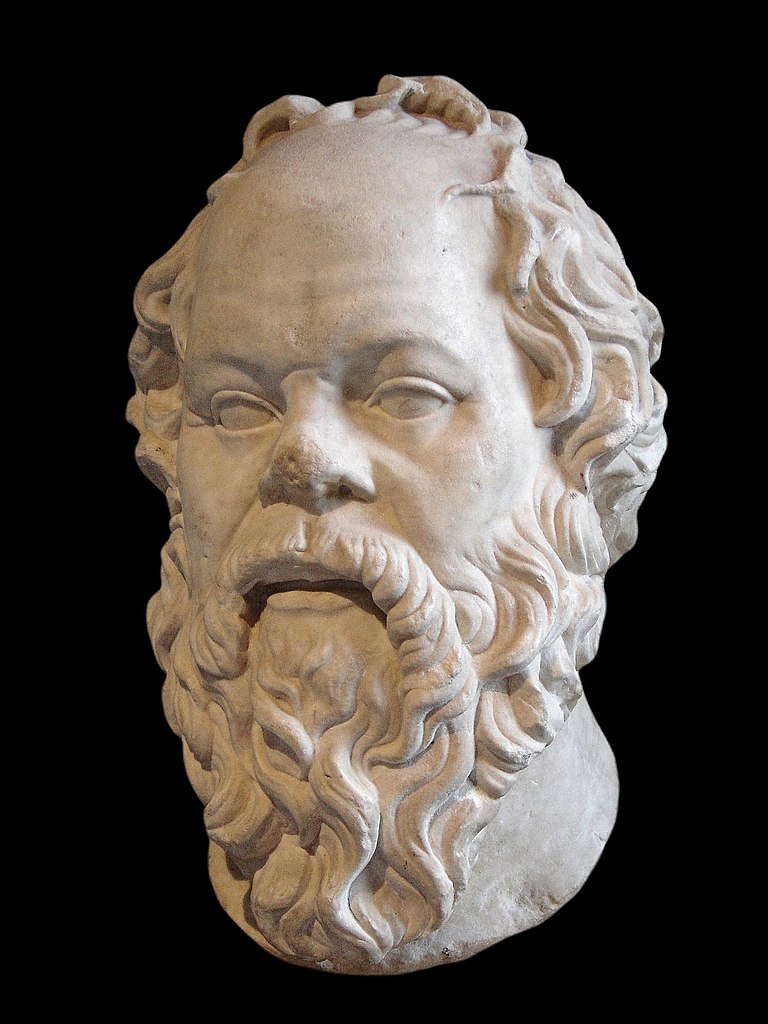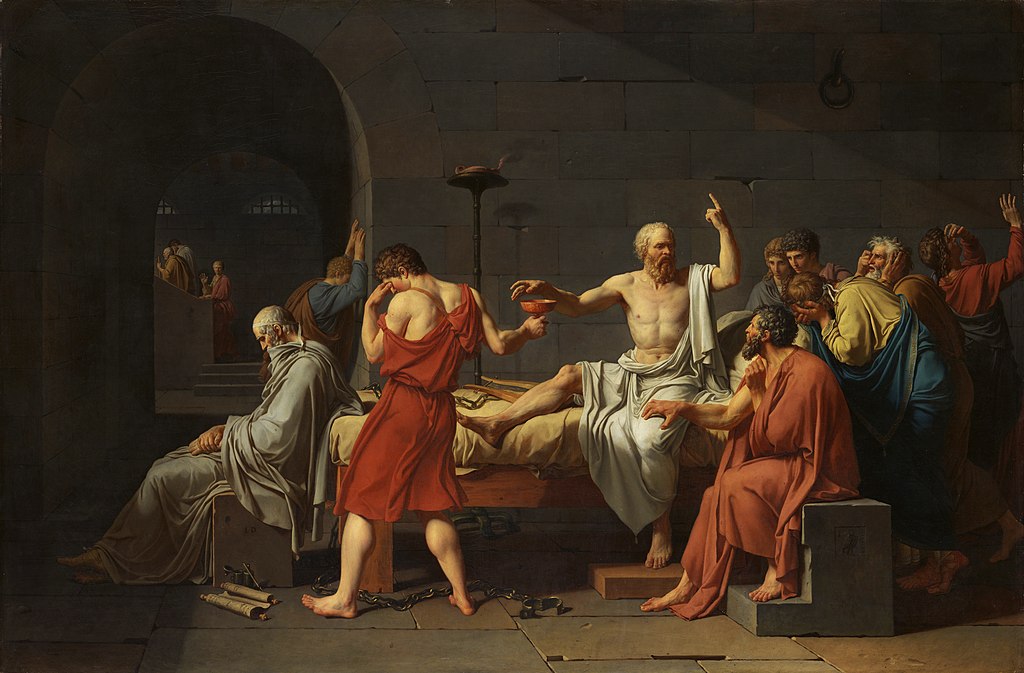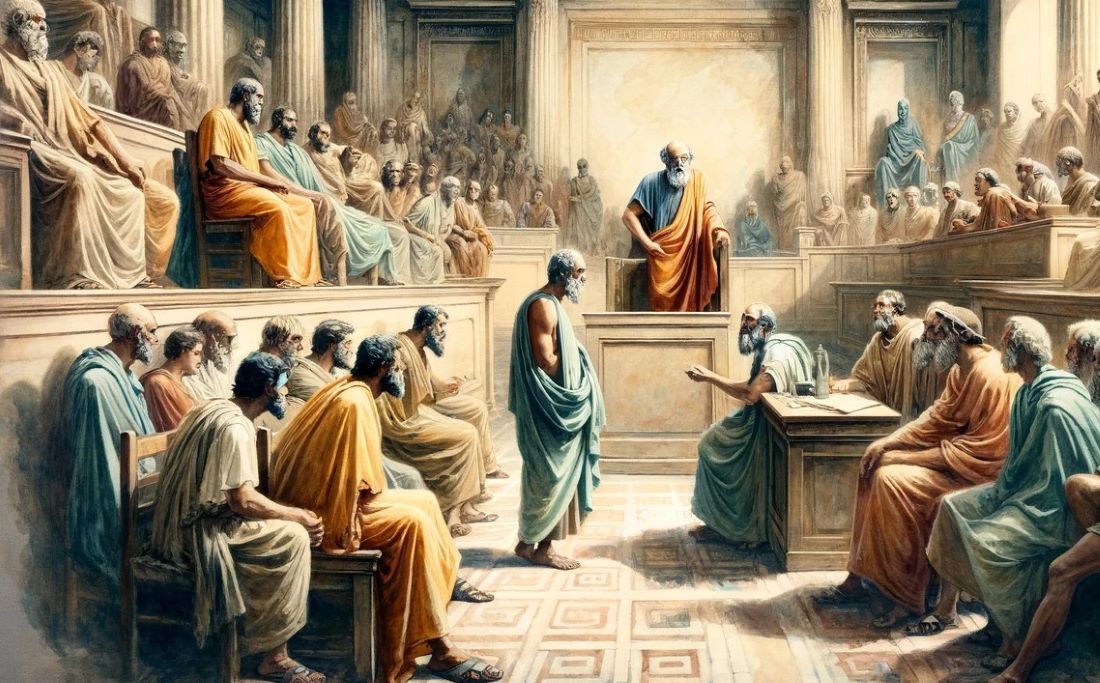The Trial of Socrates is one of the most pivotal moments in ancient philosophy and the history of Western thought. Socrates, a classical Greek philosopher, was renowned for his contributions to ethics and epistemology. In 399 BC, he was brought to trial on charges of impiety and corrupting the youth of Athens. This event is significant not only because of the fate that befell Socrates but also because it underscores the tension between the search for truth and the politics of the society in which that search takes place. The trial, and Socrates’ subsequent execution, highlight the risks inherent in challenging established norms and the power of ideas to provoke societal change.
Socrates: A Brief Biography
Socrates, born around 470 BC in Athens, stands as a towering figure in the annals of Western philosophy, despite having left no written records of his thoughts. His life’s work was dedicated to exploring ethical concepts and the pursuit of virtue through relentless questioning, a method that would later bear his name: the Socratic method. This approach involved asking probing questions to expose contradictions in his interlocutors’ thoughts, guiding them toward greater clarity and self-awareness. Socrates’ commitment to questioning the status quo and his disinterest in material wealth marked him as a distinctive presence in Athenian society, where he roamed the agora engaging with citizens from various walks of life.

The essence of Socrates’ philosophy and the details of his life come to us through the works of his students, most notably Plato and Xenophon. These accounts portray a man deeply engaged in the examination of ethical and philosophical questions, often at odds with the prevailing norms of his time. Plato’s dialogues, in particular, immortalize Socrates’ dialectical method and his relentless quest for truth, laying the groundwork for much of Western philosophy. Through these texts, Socrates emerges not just as a historical figure but as a symbol of the intellectual rigor and moral inquiry that drives philosophical thought. His influence extends far beyond his own time, shaping the foundations of Western thought and inspiring generations of philosophers to come.
The Prelude to Trial
In the aftermath of the Peloponnesian War, Athens was engulfed in a wave of introspection and existential questioning. The once mighty city-state, now humbled by its defeat to Sparta in 404 BC, was rife with political instability and moral uncertainty. This period of upheaval set the stage for Socrates’ trial, as the Athenian society grappled with the consequences of its military and moral decline. Socrates, with his distinctive approach to philosophy and education, found himself increasingly at odds with the prevailing mood of suspicion and the desire for a return to traditional values.
Socrates’ method of questioning, aimed at uncovering the truth and challenging conventional wisdom, made him a controversial figure in a society eager for stability and scapegoats. His associations with controversial figures of the time, coupled with his critiques of democracy and the Athenian state, fueled allegations against him. The charges of impiety and corrupting the youth, while ostensibly personal, were deeply intertwined with the broader societal need to reaffirm traditional Athenian values and authority. Thus, the trial of Socrates can be seen as a culmination of Athens’ broader crisis of identity and governance, a desperate attempt to heal the wounds of war and restore social cohesion by targeting one of its most provocative thinkers.
The Trial of Socrates
The trial of Socrates, unfolding over a single day in 399 BC, remains a seminal event in the annals of Western philosophy and jurisprudence. Convened in the heart of Athens, a jury of 501 citizens was assembled to hear the case against Socrates, who faced grave charges of impiety and corrupting the youth. Throughout the proceedings, Socrates engaged in his characteristic method of dialectical questioning, not so much mounting a defense to secure his acquittal as to probe and challenge the moral underpinnings of the accusations against him. His responses to the charges were laced with irony and a steadfast commitment to his philosophical principles, underscoring his belief in the pursuit of virtue and the examined life over the fear of death. Despite or perhaps because of his unyielding stance, the jury found him guilty, sentencing him to death by consuming a potion containing poison hemlock.

Socrates’ reaction to his sentence was in keeping with the virtues and moral values he espoused throughout his life. Rather than expressing fear or regret, he maintained a composed demeanor, viewing his punishment as an opportunity to underscore the essence of his teachings. His refusal to escape from prison, despite having the means and support to do so, was a profound testament to his integrity and philosophical convictions. Socrates argued that fleeing would constitute a betrayal of his principles and a disregard for the laws of Athens, which he had always sought to uphold. This unwavering adherence to his beliefs, even in the face of death, exemplifies the depth of Socrates’ commitment to his ideals. It serves as a powerful reminder of the potential cost of living a life dedicated to truth, justice, and the relentless questioning of accepted norms.
Historical Challenge: Can You Conquer the Past?
Answer more than 18 questions correctly, and you will win a copy of History Chronicles Magazine Vol 1! Take our interactive history quiz now and put your knowledge to the test!

